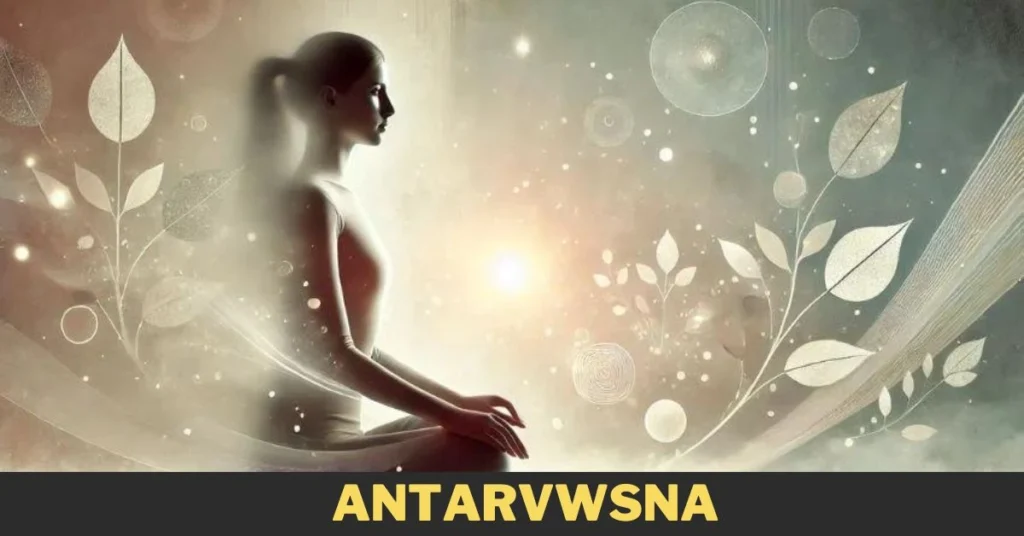The concept of “antarvwsna” carries deep significance in various philosophical, cultural, and spiritual contexts. Derived from ancient traditions and human experiences, this term encapsulates a broad range of interpretations, all pointing to the internal journey of self-awareness, conflict, and transformation. In this essay, we will explore the meaning of antarvwsna, its cultural relevance, its role in personal growth, and how it can serve as a guiding force in both individual and collective evolution.
Understanding Antarvwsna: The Inner Dialogue
At its core, antarvwsna refers to an internal dialogue or conflict that exists within every individual. It is a concept that goes beyond surface-level thoughts and delves into the deeper realms of consciousness. This inner dialogue often arises when people are faced with choices that challenge their beliefs, values, and desires. Antarvwsna is the tension between competing aspects of the self, urging a person to look inward and confront their true nature.
The word itself may be interpreted differently across cultures and languages, but the essence remains the same: it signifies an internal struggle between what one is and what one aspires to be. It involves conflicting emotions, values, and decisions that must be resolved to achieve inner harmony.
The Historical and Cultural Roots of Antarvwsna
The roots of antarvwsna can be traced back to ancient spiritual traditions, particularly in Eastern philosophies like Hinduism and Buddhism. In these belief systems, the concept of inner conflict or the duality of existence has been central to understanding human nature. In Hinduism, for example, the battle between dharma (duty) and adharma (what goes against duty) reflects the idea of antarvwsna. Similarly, Buddhism emphasizes the constant struggle between desire and detachment, illustrating how inner conflict shapes human experience.
This concept is not limited to Eastern thought. In Western philosophy, thinkers like Socrates and Nietzsche explored similar themes. Socrates’ idea of the “examined life” suggests that self-awareness and introspection are essential for living a meaningful life, while Nietzsche’s concept of the “will to power” highlights the internal struggle between human desires and the drive for self-overcoming.
Antarvwsna also plays a role in modern psychology, where the conflict between the conscious and unconscious mind can mirror the inner struggles people face. Sigmund Freud’s theories about the id, ego, and superego also offer a framework for understanding antarvwsna in terms of the internal battles between primal desires, rationality, and moral values.
The Role of Antarvwsna in Personal Growth
Antarvwsna is not merely an abstract concept but a practical reality for most individuals. At different points in life, people encounter situations that force them to confront their inner selves, whether through relationships, careers, or personal choices. These internal conflicts can be uncomfortable, but they also offer opportunities for growth and transformation.
Facing antarvwsna requires individuals to engage in self-reflection and introspection. By recognizing and understanding their internal conflicts, they can gain clarity on their true desires, values, and motivations. This self-awareness enables them to make conscious decisions that align with their authentic selves.
Moreover, resolving antarvwsna often leads to personal evolution. When individuals confront their inner struggles and reconcile opposing aspects of themselves, they achieve a sense of harmony and integration. This process allows them to become more self-actualized and fulfilled.
Antarvwsna in Relationships: Navigating Internal and External Conflict
In addition to personal growth, antarvwsna plays a significant role in relationships. Human interactions are complex, and they often bring out inner conflicts that individuals may not have been fully aware of. For example, romantic relationships may trigger issues related to trust, vulnerability, and commitment. Friendships and familial bonds can also expose tensions between personal desires and social expectations.
When antarvwsna arises in relationships, it can manifest as internal struggles about whether to prioritize one’s needs over those of another or whether to express certain emotions openly. The resolution of these conflicts often determines the health and longevity of the relationship.
Effective communication is key to navigating antarvwsna within relationships. By acknowledging and discussing internal struggles, individuals can foster greater understanding and empathy with their partners. This process helps to build trust and emotional intimacy, allowing relationships to flourish even in the face of conflict.
Antarvwsna and Collective Consciousness: Societal Implications
On a broader scale, antarvwsna can also be seen in the collective consciousness of societies. Societies are made up of individuals who each carry their internal conflicts, and when these conflicts converge, they shape the social, political, and cultural landscapes. Issues like inequality, discrimination, and environmental degradation can be understood as manifestations of antarvwsna on a collective level.
For example, the tension between economic growth and environmental sustainability is a form of societal antarvwsna. Nations face the internal struggle of wanting to develop economically while also needing to protect the environment. Similarly, debates around social justice and equality reveal the internal conflicts of societies as they grapple with competing values like tradition and progress, freedom and equality.
Resolving societal antarvwsna requires collective introspection and action. Just as individuals must confront their inner conflicts to achieve personal harmony, societies must address their internal contradictions to create a more just and equitable world.
Antarvwsna in the Creative Process
Many artists, writers, and musicians experience antarvwsna as an integral part of their creative process. The tension between different ideas, emotions, and desires can serve as a powerful source of inspiration. Often, creativity is born out of the need to resolve inner conflict and express the complex interplay of opposing forces within the self.
For instance, a poet may struggle to reconcile feelings of joy and sorrow, leading them to create verses that capture the full spectrum of human emotion. A painter might wrestle with the tension between realism and abstraction, producing works that challenge the viewer’s perception of reality.
In this way, antarvwsna not only drives personal growth but also fuels artistic innovation. By embracing their internal conflicts, creatives can push the boundaries of their craft and produce work that resonates deeply with others.
How to Embrace and Resolve Antarvwsna
While antarvwsna can be challenging, it is also a natural and necessary part of life. Embracing internal conflict rather than avoiding it is key to resolving it and moving forward. Here are some strategies for confronting and resolving antarvwsna:
- Self-reflection: Taking time to reflect on your thoughts, feelings, and desires is crucial for understanding the root of your internal conflict. Journaling, meditation, and quiet contemplation can help you gain clarity.
- Honest communication: Whether you’re dealing with personal antarvwsna or conflict in relationships, open and honest communication is essential. Sharing your internal struggles with trusted friends or partners can provide valuable insights and support.
- Seeking guidance: Sometimes, it can be difficult to resolve antarvwsna on your own. Seeking guidance from a mentor, therapist, or spiritual leader can offer new perspectives and help you navigate your inner journey.
- Accepting imperfection: Recognize that antarvwsna is a natural part of life, and it’s okay not to have all the answers. Accepting the imperfection of your inner dialogue allows you to approach conflict with more compassion and less judgment.
The Long-Term Benefits of Confronting Antarvwsna
While confronting antarvwsna can be uncomfortable, the long-term benefits are profound. Resolving internal conflicts leads to greater self-awareness, emotional resilience, and personal growth. Over time, individuals who regularly engage with their inner struggles are more likely to experience a sense of fulfillment and purpose in their lives.
On a societal level, embracing antarvwsna can lead to progress and innovation. When societies confront their internal contradictions, they can create more inclusive and equitable systems that benefit all members. The process of collective introspection and dialogue enables societies to evolve and adapt to changing needs and values.
Conclusion
Antarvwsna is a universal experience that touches every aspect of human life, from personal growth to relationships and societal change. By embracing and confronting our internal conflicts, we open ourselves to deeper self-awareness and transformation. Whether through individual introspection or collective action, antarvwsna can be a powerful force for growth, guiding us toward greater harmony with ourselves and the world around us.
Read More: Play Heardle 60’s: Challenge Yourself with the Greatest Songs of the 1960s






